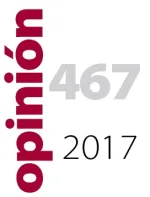Lessons Learned: The Netherlands-Turkey Crisis in 5 Points

Never have the Dutch elections been monitored so closely by the international public. The possibility of a Wilders' victory in a post-Brexit and Trump world was one factor, but then came the #tulipcrisis.
Amid the road to the presidential referendum to be held on April 16th, rows between Turkey and European capitals have almost become a “normal”, but the unusual row that broke out between Turkey and the Netherlands just before the Dutch elections is still making the headlines. What made it unusual was mainly the rhetoric: renowned for their prudent and, as some even call it, boring style of diplomacy, the attitude of the Dutch government towards Turkey has for the first time been so different than before, persistently non-compromising.
Could this crisis have been prevented before escalating? Will the effects fade away soon or will it be felt for a while longer? Who gained from this crisis? It is hard to see what turn it is yet to take, but there are some initial lessons to be learned.
1. Rutte’s strategy earned him Wilders’ votes in the Dutch elections, but populism has been the absolute winner of this crisis. Contrary to the expectations of a PVV lead in the elections up until the Turkey crisis, Rutte's liberal-conservative VVD has come out as the leading party with the highest number of seats. Yet the crisis is likely to push for a focus on Turkey debates, as well as more intensive anti-Turkish sentiments within the populist party. Regardless of its exclusion from a coalition government, PVV’s position as the second biggest party will highly politicize the issue of the Dutch Turks in the parliament. This crisis has also shown how populism is taking over mainstream politics. The sudden and narrow focus of the agenda on migration, integration and identity issues in light of the Dutch-Turkish crisis has given Wilders the space to dominate debates on Islam, immigration and establishment within his populist conception. These debates are likely to be revitalized in Parliament.
2. The AKP's strategy might have earned them some nationalist votes, but the crisis can also have a reverse effect on some voter groups (and, once again, populism has been the absolute winner of this crisis). It has been widely assumed that, by playing the nationalist card, the AKP increased the "yes" votes for the upcoming presidential referendum in Turkey significantly. The AKP even claimed that it increased by two points since the crisis broke out. While this could be true for the nationalist voters to some extent, for the most part, protests against the Netherlands were initiated by the already pro-AKP and/or nationalist camp, and its impact on the indecisive voters is not clear. Had Turkey been going through elections, this crisis might have earned the AKP a significant amount of votes; but a system change is at stake and the referendum is a month away. Playing the nationalist card will not be enough to win the more rational and less emotionally-driven indecisive voters’ hearts and minds. Even if this crisis earns “yes” votes, it will be a short-term gain for the AKP; President Erdogan and his party will have too many fences to mend in Europe the day after the referendum.
3. While vowing for harsh retaliation, the Turkish government is steering clear from any economic sanction. According to the Turkish Statistical Institute, in 2016, Turkey has exported $3.6 billion worth goods to, and imported $3 billion worth goods from the Netherlands. This made the Netherlands the 10th largest market for Turkey’s exports. Last year, around 900,000 Dutch tourists visited Turkey. In light of this, one can see why, on the first day of the crisis, Erdogan was quick to adapt his remark about Dutch flights to Turkey, “let's see how your planes will come to Turkey from now on," to “of course I am talking about diplomacy, not the citizens, that’s a different subject and we will evaluate accordingly”, next to multiple ministers insisting that the crisis will not have implications on trade and tourism ties. Given the current state of its economy, Turkey would be on the losing side if economic sanctions were to be applied, and the government is aware of this. On the other hand, the risk of a spill-over of such aggressive diplomacy to bilateral trade can push Turkish voters involved in the business sector to question the long term effects of Erdogan’s presidency on Turkey’s already precarious economy.
4. Refugees and diaspora Turks in Europe have been the victims of this conflict. Turkish migrants in Europe, particularly in the Netherlands, have been heavily instrumentalised by not only the two governments, but also by the media. The mobilisation of some groups within the diaspora has sparked an increasingly negative perception of Turkish immigrants in not only the Netherlands but also other host countries in Europe. As such, the EU-Turkey refugee deal has been brought back to the table from the side of Turkey along with threats of “reassessing” it. Refugees have once again turned into a bargaining chip in politics.
5. Mainstream politics are in crisis, and European debates on Turkey are politicizing. This crisis and the Dutch elections have shown how the mainstream is adapting to populism to win over populism, or in Rutte’s words, “the wrong kind of populism”, which is likely to echo in other mainstream parties in Europe, particularly those facing elections. Debates on Turkey are increasingly driven by debates on the ruling AKP government and President Erdogan, and turning into a discourse of “us” versus “them” on both sides. As such, Turkey’s accession prospect to the EU is a far reality.
D.L.: B-8439-2012